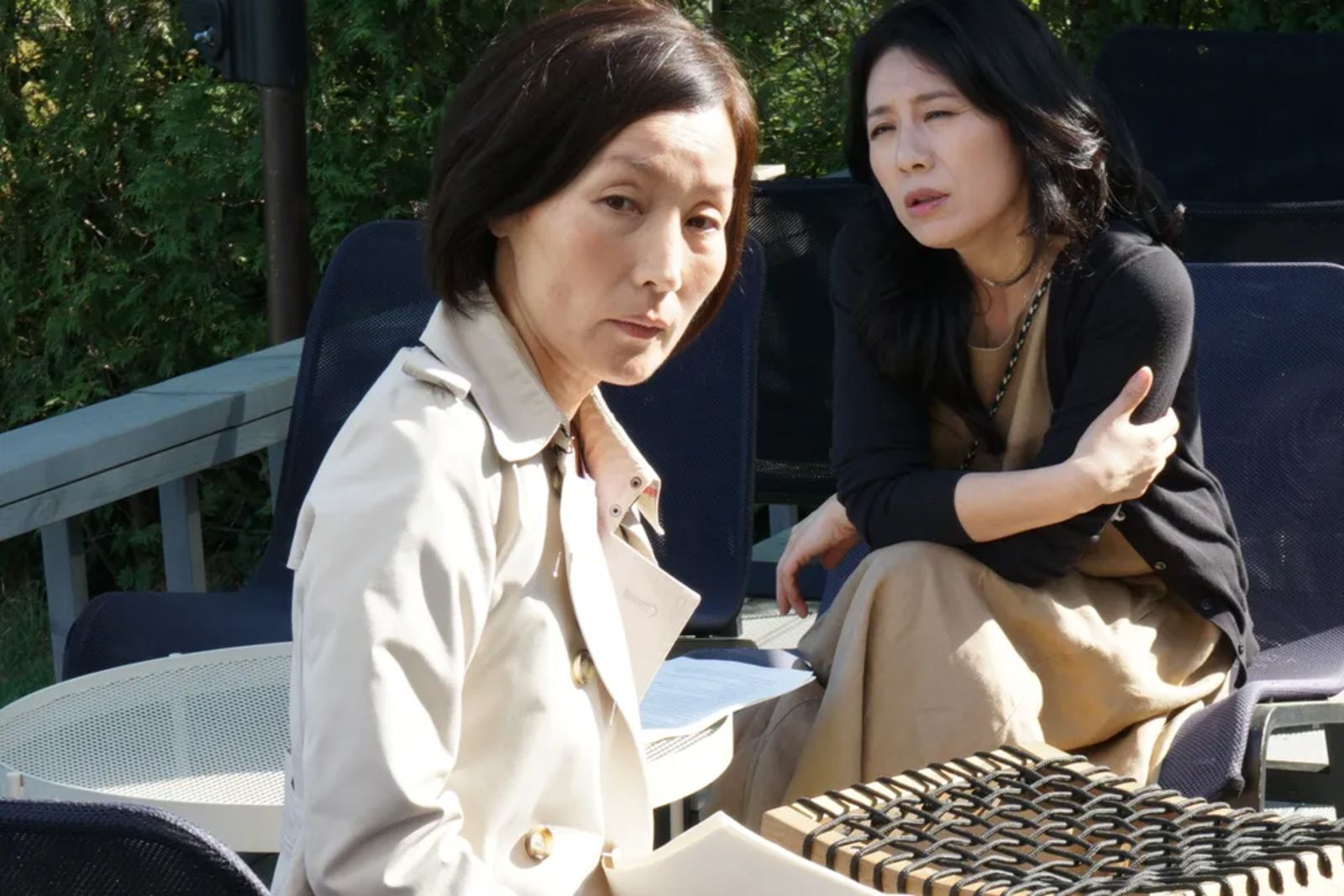By evidence, Hong Sangsoo may never make an Oki’s Movie or Hill of Freedom-type work again; our maestro is shooting for bigger emotional game. It’s fascinating to observe how idiosyncratic directors make their way towards the arthouse mainstream. With Hong, arguably, it’s come from two sources: less of a rigid fixation on male vanity, neurosis, and inebriation, coupled with plot summaries you could describe in a brief, eloquent sentence. Oki’s Movie, for instance, approaches a Faulkner-esque writer with its digressive intricacy; The Day He Arrives is like a fractal Groundhog Day. This is well-rehearsed, but there’s something to be said for emotional transparency and an examination of things “as they are,” to paraphrase dialogue from In Front of Your Face’s lead character. Another well-rehearsed question: are we yet again in self-portraiture mode, for someone with a Dorian Gray-like attic full of them?
Meet Sangok (touchingly played by Lee Hye-young), another of Hong’s transient creatives, currently living in her sister’s front room on a futon. It’s the COVID era, reflected in a weirdly indirect, almost theatrical way: we see extras (or “background characters”) masked-up, but lead players never reach into their pockets for theirs, nor is it remarked upon. To join the dots, Sangok is “crashing” (if that’s the word for these 40-somethings) at her sister’s newly built apartment in a small, northern area of South Korea, most likely given special dispensation to return home from the U.S. west coast. She previously worked in Washington D.C. as a travel agent. Hong himself studied film in a fine arts context in Chicago, getting his career going in his mid-30s and flourishing in later years.
Sangok has a particularly melancholic, hesitant gait about her, compared to the more chipper sis Jeongok (Cho Yun-hee). We can sense this in voiceovers recounting very sincere prayers (South Korea’s majority religion is Christianity). The news of her former notoriety as an actress almost comes as a surprise; we’re really bathing in a down-to-earth mode here, with talk of her nephew’s food business and little sense of the glamour and neurosis of the creative class. But Jeongok has an impromptu work meeting with acclaimed director Jaewon (Kwon Hae-hyo), and there’s a slightly awkward lack of clarity about its nature: food, drink, company, privacy. It’s quite alarming to see, given how #MeToo exposed these fault lines years ago.
What follows in this meeting—buttressed by alcohol, as Hong’s ensemble scenes often are—has to be one of the most emotionally powerful sequences in his oeuvre. It shifts our notion of Sangok with an honest disclosure, and shows Jeongok’s sincerity and attraction to her in a way that challengingly excuses his motivations for meeting her. Whatever you want to say, one can recall the source of Hong and Kim Min-Hee’s relationship (the first time she hasn’t appeared in a film by her partner since 2017; here she’s a producer), and how intimate relationships can blossom in these realms. Think of all the botanical imagery in Hong’s recent work—organic life must bloom, and sometimes we can’t control it!
After about 24 hours we return to where we began, reprising the locations of three scenes; Hong hasn’t lost his precise formal control. His productivity is more like Fassbinder than the now-disgraced Woody Allen, sometimes a natural comparison. A body of work like components of a house: one film is a corridor, another a small bedroom window. Others are the structural backbone. A looming jewel of a career, right in front of your face.
In Front of Your Face premiered at the Cannes Film Festival and will arrive in the U.S. via Cinema Guild.

